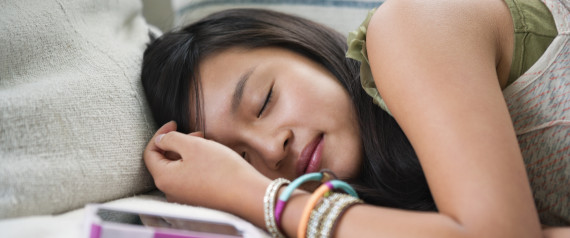
By Tara Haelle
Teenagers are famous for having erratic sleeping patterns. But those who aren't getting enough sleep may be setting themselves up for illness.
A recent study found that teens were more likely to get sick if they were getting shorter amounts of sleep each night.
The study involved a small group of high school students, but the findings match up with health risks found from too little sleep in past studies.
More from dailyRX:
Are Athletes Advertising Unhealthy Foods to Kids?
Getting to the Heart of Sleep Apnea
Don't Ignore That Sleep Problem[1] [2] [3]
In fact, teens in this study who became sick frequently experienced the illness in the days after a period of less sleep each night.
This study, led by Kathryn M. Orzech, of the E.P. Bradley Hospital Sleep Research Laboratory in Providence, Rhode Island, looked at whether nightly sleep time among teens related to their risk of getting sick.
The study included 56 teens, aged 14 to 19, who came from five high schools in Rhode Island.
Starting at the end of January, the teens wore devices called actigraphs for an average of three months.
Actigraphs measure a person's movement and provided one method of measuring how much sleep the participants got each night.
After the teens had finished wearing the actigraphs, the researchers divided the teens into groups according to whether they got greater or lesser amounts of sleep each night, on average.
Meanwhile, over a four month period, the teens were interviewed once a week by the researchers, who asked about the teens' health, illnesses and missed days from school or school events due to illness.
Being sick could include having a cold, the flu, strep throat, stomach problems or other common infectious diseases.
In looking for patterns among the findings, the researchers discovered that teens who slept for longer each night or were male were less likely to get sick.
Sleeping for longer periods at night appeared to be more protective against illness for boys than for girls.
Meanwhile, a closer analysis of a smaller group of the students revealed that the teens were more likely to have gotten less sleep each night in the days leading up to getting sick.
"We found that acute illnesses were more frequent in otherwise healthy adolescents with shorter sleep across a school semester," the researchers wrote.
In addition, teens appeared to get sick more often after having a period of less sleep each night than other times when they got more sleep.
In more closely examining a couple students, the researchers determined that some of the factors influencing the amount of sleep the teens got were how regular their schedules were, their activities with friends and how much they preferred evening activities.
The findings of this study match up with what researchers have found in other studies relating to the body's response to too little sleep, according to William Kohler, MD, the medical director of the Florida Sleep Institute in Spring Hill, Florida.
"Previous research has shown alterations in the immune and inflammatory systems with sleep loss, and this particular study shows the clinical, 'real-life' cases in a specific age group where there were definite illnesses associated with short sleep," Dr. Kohler said.
"I think the bottom line that we all need to remember is that adequate quantity and quality of sleep is necessary for optimal functioning and if we do not get the proper sleep, we're at risk for various medical problems, including this increase in infections," he said.
The study was published October 18 in the Journal of Sleep Research[4] . The research was funded by the National Institute of Mental Health and T32 training grants.
One author is an employee of Jazz Pharmaceuticals. The other authors reported no potential conflicts of interest.
Also on HuffPost:
References
- ^ Are Athletes Advertising Unhealthy Foods to Kids? (www.dailyrx.com)
- ^ Getting to the Heart of Sleep Apnea (www.dailyrx.com)
- ^ Don't Ignore That Sleep Problem (www.dailyrx.com)
- ^ Journal of Sleep Research (onlinelibrary.wiley.com)
- ^ Send us a tip (www.huffingtonpost.com)
- ^ Send us a photo or video (www.huffingtonpost.com)
- ^ Suggest a correction (www.huffingtonpost.com)

0 comments:
Post a Comment